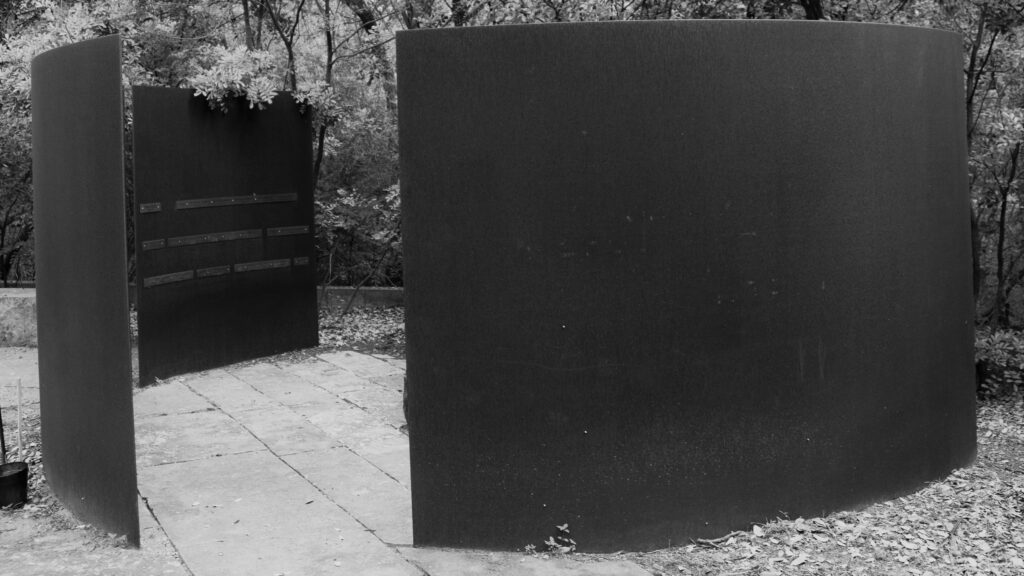The Legacy We Leave

Scriptures:
[Moses, before his death, said to the Israelites], Hear, O Israel: The LORD our God, the LORD is one. Love the LORD your God with all your heart and with all your soul and with all your strength. These commandments that I give you today are to be on your hearts. Impress them on your children. Talk about them when you sit at home and when you walk along the road, when you lie down and when you get up. Deuteronomy 6:4-7
[On the night before Jesus’ crucifixion], after he washed the disciples’ feet, he put on his robes and returned to his place at the table. He said to them, “Do you know what I’ve done for you? You call me ‘Teacher’ and ‘Lord,’ and you speak correctly because I am. If I, your Lord and Teacher, have washed your feet, you too must wash each other’s feet. I have given you an example: Just as I have done, you also must do. John 13:12-15
[Shortly before his death], David made extensive preparations before his death. David sent for his son Solomon and instructed him to build a temple for the LORD, the God of Israel. [Then David said to Solomon], “If you carefully follow the regulations and case laws that the LORD commanded Moses concerning Israel, you’ll prosper. Be strong and brave. Don’t be afraid or lose heart! With great effort I’ve now provided for the LORD’s temple.” 1 Chronicles 22:5c-6, 13-14
MONDAY 11.7.22 1 Chronicles 17:1-15
Disappointment for David
Israel’s King David already had many historic successes. He united Israel’s 12 tribes (cf. 2 Samuel 5:1–3). He took Jerusalem (cf. 2 Samuel 5:6–9), made it their capital city, and praised God by bringing the ark of the covenant to Jerusalem (cf. 2 Samuel 6:12–15). Building a temple to house the ark must have seemed a logical next step. But through the prophet Nathan, God said, “no,” which was surely a disappointment. He said David’s son would succeed him, and he should build the temple.
- Scholar John Goldingay saw a key drawback to David’s temple idea. “It reverses the relationship between God and David. God has been the one who has taken responsibility for the big initiatives and achievements in Israel’s story. To put it theologically, what has happened has depended on God’s grace.” How can Nathan’s message remind us of the danger of taking credit for even good things we do as our accomplishment, rather than God’s grace working through us?
- Chronicles (written after Israel’s Babylonian exile) echoed 2 Samuel 7:16’s pledge that God would establish David’s dynasty “forever.” But in fact “they had descendants of David in their midst but not on the throne.” ** Had God’s promise failed? Only temporarily, it turned out. Centuries later, an angel told Mary her God-given son would ultimately reign on “the throne of David his father” (Luke 1:32–33). Across centuries, God kept his promise. How can that deepen your trust in God?
Prayer: Lord God, keep me aware that any good I do, anyway I help to build your kingdom, is a testimonial to your grace at work through my life and my God-given gifts. Amen.
TUESDAY 11.8.22 1 Chronicles 28:1-11, 20
David focused his energy on the future
We read yesterday that King David had a dream: to build a Temple to honor his God (cf. 2 Samuel 7:1–5, 1 Chronicles 17:1–15). But when God (through the prophet Nathan) said David was not the person to build the Temple, David didn’t complain or sulk. He turned his attention and energy to the future God’s message outlined. His legacy became, not a building, but a builder, as he trained Solomon to be the king who’d direct the building of the beautiful temple.
• “Okay, Solomon— No pressure! God has chosen you to build a temple for him. Work hard.” In fact, David’s closing words to his son (“Be strong and courageous”) echoed Moses’ support of his successor Joshua (cf. Deuteronomy 31:7–8, 23), and anticipated Paul’s charge to Christians in Corinth (1 Corinthians 16:13) and God’s message to Paul as he preached in that large Greek city (cf. Acts 18:9). How can you internalize God’s message to “be strong and courageous” today?
• David spoke of God’s choosing. It didn’t (and doesn’t) mean the chosen get a free pass to heaven, that God chose you because you are better than others, or that you can live any way you please.
“God’s choice of Abraham was not a means of excluding other people but of including them….
They were chosen to fulfill a role, not in order to enjoy being chosen.” God has chosen you (cf.
Ephesians 3:2,10) to fulfill the role of showing others what God is like. How can you do that?
Prayer: Lord Jesus, keep transforming me into a window through which your light can shine, into an instrument of your peace in this angry, contentious world. Amen
WEDNESDAY 11.9.22 1 Chronicles 29:1-5, 9
David provided resources for his legacy
King David didn’t just talk a good game in support of his son Solomon’s temple-building assignment. He eagerly set out to gather what his son Solomon would need for the building. He started by setting aside a large chunk of his personal fortune as a legacy. But it wasn’t a one-man project—he allowed all of Israel a chance to join in as they chose. David and the people saw giving as a privilege, not a burden. They were giving back what came from God’s hand for God’s purposes.
- In his praise, David told God, “Since everything comes from you, we have given you that which comes from your own hand.” He described humans as “immigrants without permanent homes” (language that anticipated Hebrews 11:13–16 by centuries). Do you agree that whatever you have ultimately comes from God, or do you see it as something you created or earned? Do you think of any giving you do as “giving back,” or more as having to give up something that is yours?
- 1 Chronicles 29:9 said the people rejoiced, not because they’d reached a fixed financial amount, but because “they had presented their offerings to the Lord so willingly and wholeheartedly.” In your life, do the words “willingly and wholeheartedly” apply to paying for health insurance and/or medical bills? Buying birthday or Christmas gifts? Paying to fix your roof or plumbing? Whatever you give to causes for God’s kingdom?
Prayer: Lord God, thank you for the gift of life and all that comes with it. Grow in me a heart that fills with joy when I have the privilege of giving back some of what you’ve given me. Amen.
THURSDAY 11.10.22 Psalm 78:1-8, 71:14-19
Living for “all who are yet to come”
God’s people have always valued teaching and learning. In Israel of old, the focus of education was not to satisfy random human curiosity but to understand and pass on the knowledge of God’s powerful acts to future generations. They clearly believed that God wants us to use our minds regularly, faithfully, and well.
- Psalm 78 said that while learning has present benefits, it is strongly future-focused. God’s followers, through the centuries, have played a major role in starting many types of schools. That’s because the faith teaches them to care about future generations, not merely their own comfort and security. How important is it to you that your faith not only makes your life better but reaches those who will be here after you’re gone?
- Psalm 71 had a different view from investment ads that picture our older years as a non-stop, self-indulgent vacation. The psalmist saw a lifelong calling to share God’s love and power: “Even in my old age with gray hair, don’t abandon me, God! Not until I tell generations about your mighty arm, tell all who are yet to come about your strength.” Whether you’re 21 or 81, how are you (or how will you start) shaping a legacy focused on telling generations about the God you love and serve?
Prayer: Lord God, I want to accept the challenge. I want to live a life with the big picture aim of helping present and future generations know your strength and ultimate righteousness. Please help me. Amen.
FRIDAY 11.11.22 Acts 20:22-35
Paul’s Jesus-based “retirement plan”
Acts recorded the Apostle Paul’s final, emotional talk to his friends who led the churches in Ephesus.
His words show in clear (and challenging) ways how he defined “success,” and was planning for his “retirement.” He quoted Jesus as his model in verse 35 (the only direct quote from Jesus not in the four gospels). Paul’s “retirement plan” was about serving others. He didn’t believe he would finish his earthly work while still on earth, only when the day arrived that he was in God’s eternal kingdom.
Paul was going to Jerusalem to deliver a gift of funds he’d collected from Gentile Christians for Jewish Christians facing hardships. Think of a time when you gave something with an open heart (e.g. money, or maybe your time or listening caringly to someone hurting, etc.). Then recall a time when you bought an item you really wanted for yourself. Compare the two experiences. How lasting was the joy and well-being in each case?
• As he left this group of church leaders, Paul said, “I’m turning you over to God, our marvelous God whose gracious Word can make you into what he wants you to be and give you everything you could possibly need” (verse 32, The Message *). In what ways has your perspective on your “needs” and “wants” changed since you’ve opened your life to Jesus? List, for your own reflection, some examples of ways your values have shifted over time.
Prayer: Lord Jesus, your servant Paul knew that life is not about “silver, gold, or clothing” nearly as much as it’s about “helping the weak.” Infuse my life with that same wisdom and understanding. Amen.
SATURDAY 11.12 Ephesians 2:4-7
Your salvation: a message to “future generations”
“God is rich in mercy.” “You are saved by God’s grace.” That was the beating heart of our faith, said the letter to the Ephesians. God saved us FROM a broken, self-seeking way of life. But that wasn’t the end of the story; it was just the beginning. What Jesus called “the kingdom of God” aims to restore not just individuals, but this whole broken world to God-given wholeness. God didn’t save any of us just to do something nice for us. If in fact “God did this to show future generations the greatness of his grace,” then a part of our response to God’s grace must surely be to thoughtfully seek to leave a legacy that plays a role in showing future generations how good God has been to us.
• John Wesley, Methodism’s founder, applied Ephesians 2 to everyday life in his “second general rule”: “By doing good; by being in every kind merciful after their power; as they have opportunity, doing good of every possible sort, and, as far as possible, to all men.” Are there “sorts” of goodness you didn’t use to practice, but do now as a Christ follower? Let Wesley’s phrase “doing good of every possible sort” spark your creativity. What new sorts of goodness, not just for the present but for future generations, might God be nudging you to consider making a part of your life and planning?
Prayer: Lord Jesus, thank you for all that you have saved me from. Guide me day by day into a way of living that honors and carries out the purposes you saved me for, now and in the future. Amen.

